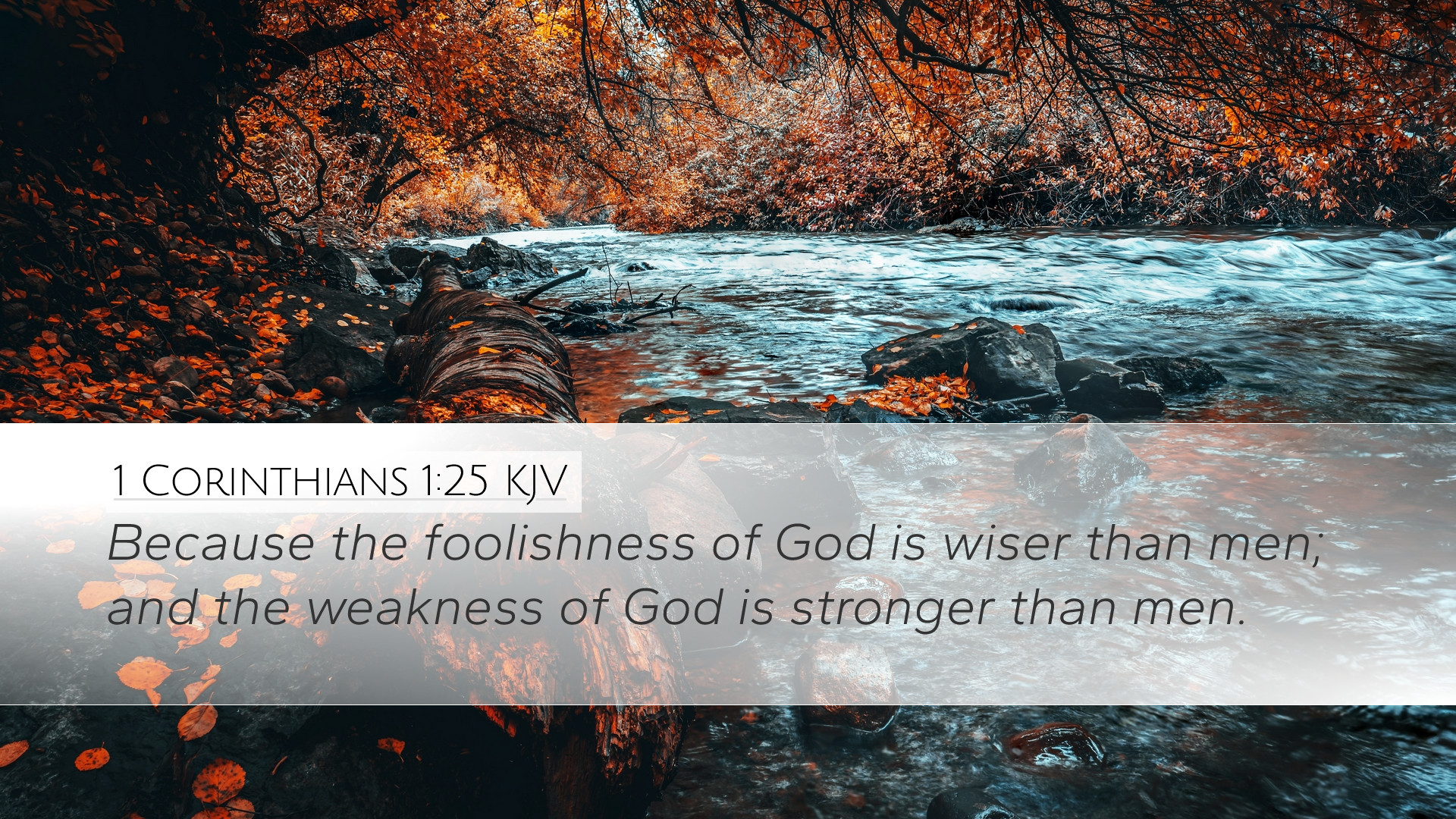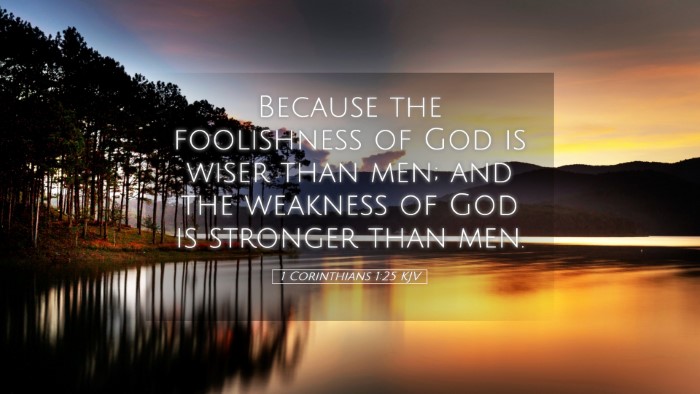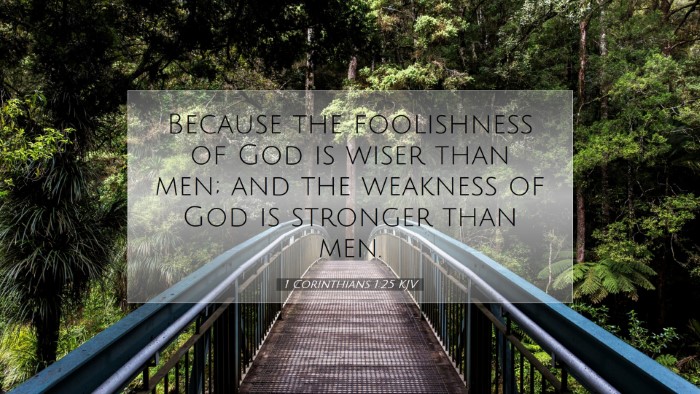Commentary on 1 Corinthians 1:25
Verse Text: "Because the foolishness of God is wiser than men; and the weakness of God is stronger than men." (1 Corinthians 1:25)
Introduction
This profound verse encapsulates a significant theme within the Apostle Paul's letter to the Corinthians. Paul addresses the wisdom of God's plan, particularly as it contrasts with worldly wisdom. In doing so, he emphasizes that even what might be deemed as foolishness or weakness in God's economy reflects an unparalleled depth of wisdom and strength that surpasses human understanding.
The Context of the Verse
In the context of 1 Corinthians, Paul is writing to a divided church that is struggling with various issues, one of which is the perception of wisdom and eloquence in human terms. The Corinthians, influenced by their Greco-Roman culture, valued wisdom, rhetoric, and intellectual prowess. Paul counters this by affirming that the message of the cross, perceived as foolishness, is, in reality, the greatest demonstration of divine wisdom.
Interpretations from Public Domain Commentaries
Matthew Henry's Commentary
Matthew Henry highlights the paradox of God's wisdom and strength. He notes that what the world considers foolish and weak serves to display God's ultimate authority and might. Henry explains that God's “foolishness”—referring to the gospel—has the power to confound those who trust solely in human wisdom. He writes:
"The gospel appears foolish to those who are wise according to the flesh; yet it has a wisdom that transcends all human comprehension."
Albert Barnes' Commentary
Albert Barnes elaborates on the earnestness of the Apostle in this verse. He asserts that the expression "foolishness of God" must be viewed within the context of the cross, which was mocked and rejected by many. Barnes comments:
"The wisdom of God as displayed in the gospel is so far beyond the comprehension of humans that it may be termed foolishness in their eyes, yet it is far superior to any human understanding."
He further emphasizes that God's plan is not contingent upon human strength; rather, it stands in stark contrast to the capabilities of man. This brings forth a message of utter reliance on God's power rather than on human abilities.
Adam Clarke's Commentary
Adam Clarke provides a detailed analysis of the terms “foolishness” and “weakness” in this verse. He suggests that the apostles faced ridicule because they preached a crucified Messiah, a doctrine considered utterly foolish by contemporary society. Clarke writes:
"The preaching of a crucified Savior was enough to bring upon the apostles the derision of the learned and wise men of that age."
Additionally, Clarke defines God's “weakness” as the profound, seemingly ineffective attributes that in reality possess more strength than any human power. He notes that:
"The most humble means used by God can accomplish more than the mightiest works of man's strength."
Theological Significance
This verse touches upon several key theological themes that resonate deeply within the Christian faith:
- The Paradox of the Gospel: The message of the cross, which appears weak and foolish, confounds human expectations. It challenges believers to embrace vulnerability rather than power.
- God's Sovereignty: God's methods and plans often defy human logic, reminding believers that divine wisdom operates on a plane beyond human reasoning.
- Humility in Faith: The acknowledgment of one's inability to grasp divine truths leads to a posture of humility and dependence on God’s revelation.
Practical Applications for Pastors and Theologians
In light of this passage, pastors and theologians are encouraged to:
- Emphasize Dependence on God: Teach that effective ministry does not rest on human strength or eloquence but on the power of the Gospel.
- Value the Message of the Cross: Highlight the centrality of the cross in preaching and pastoral care, ensuring that it is presented as the essence of God’s wisdom.
- Challenge Cultural Norms: Foster discussions on how contemporary cultures often misinterpret or reject the truths of the Gospel, encouraging congregations to stand firm in faith despite ridicule.
Conclusion
In 1 Corinthians 1:25, Paul succinctly expresses a critical contrast between divine wisdom and human understanding. Insights from Matthew Henry, Albert Barnes, and Adam Clarke not only enhance our comprehension of this profound truth but also challenge modern believers to find strength in perceived weakness and wisdom in apparent foolishness. As we reflect on this verse, may we embrace the depth of God’s wisdom revealed in Christ and commit to sharing this transformative message with a world that often prioritizes human understanding over divine revelation.


